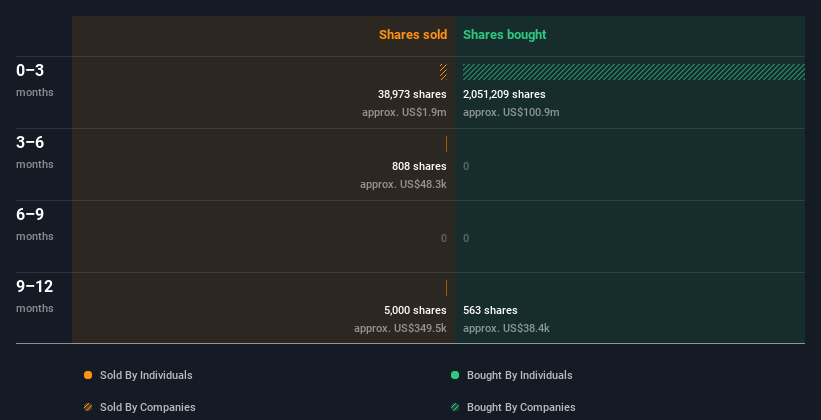Ball Drops To US$44.94, Yet Insiders May Have Sold Too Early
Ball Corporation's (NYSE:BALL) stock price has dropped 14% in the previous week, but insiders who sold US$398k in stock over the past year have had less luck. Insiders might have been better off holding onto their shares, given that the average selling price of US$68.49 is still below the current share price.
Although we don't think shareholders should simply follow insider transactions, we do think it is perfectly logical to keep tabs on what insiders are doing.
The Last 12 Months Of Insider Transactions At Ball
The Independent Director, Pedro Mariani Bittencourt, made the biggest insider sale in the last 12 months. That single transaction was for US$349k worth of shares at a price of US$69.90 each. While insider selling is a negative, to us, it is more negative if the shares are sold at a lower price. It's of some comfort that this sale was conducted at a price well above the current share price, which is US$44.94. So it is hard to draw any strong conclusion from it.
All up, insiders sold more shares in Ball than they bought, over the last year. You can see the insider transactions (by companies and individuals) over the last year depicted in the chart below. If you click on the chart, you can see all the individual transactions, including the share price, individual, and the date!
Check out our latest analysis for Ball

If you are like me, then you will not want to miss this free list of small cap stocks that are not only being bought by insiders but also have attractive valuations.
Insider Ownership
I like to look at how many shares insiders own in a company, to help inform my view of how aligned they are with insiders. A high insider ownership often makes company leadership more mindful of shareholder interests. It appears that Ball insiders own 0.5% of the company, worth about US$71m. We've certainly seen higher levels of insider ownership elsewhere, but these holdings are enough to suggest alignment between insiders and the other shareholders.
What Might The Insider Transactions At Ball Tell Us?
The fact that there have been no Ball insider transactions recently certainly doesn't bother us. Our analysis of Ball insider transactions leaves us cautious. But we do like the fact that insiders own a fair chunk of the company. So while it's helpful to know what insiders are doing in terms of buying or selling, it's also helpful to know the risks that a particular company is facing. For example, Ball has 3 warning signs (and 1 which is a bit unpleasant) we think you should know about.
If you would prefer to check out another company -- one with potentially superior financials -- then do not miss this free list of interesting companies, that have HIGH return on equity and low debt.
For the purposes of this article, insiders are those individuals who report their transactions to the relevant regulatory body. We currently account for open market transactions and private dispositions of direct interests only, but not derivative transactions or indirect interests.
Have feedback on this article? Concerned about the content? Get in touch with us directly. Alternatively, email editorial-team (at) simplywallst.com.
This article by Simply Wall St is general in nature. We provide commentary based on historical data and analyst forecasts only using an unbiased methodology and our articles are not intended to be financial advice. It does not constitute a recommendation to buy or sell any stock, and does not take account of your objectives, or your financial situation. We aim to bring you long-term focused analysis driven by fundamental data. Note that our analysis may not factor in the latest price-sensitive company announcements or qualitative material. Simply Wall St has no position in any stocks mentioned.
 Wall Street Journal
Wall Street Journal